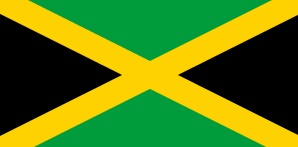The JUTC has embarked on a reconstruction initiative whereby old broken down buses that were earmarked for the board of survey will now be repaired/overhauled and put back into service.
The initiative has its genesis in a requested visit to Jamaica late last year by officials of Incavel Omnibus E Pecas, a Brazilian company with 30 years of specialised experience in bus and truck spare parts, which was seeking to do business with the JUTC. This emerged from the visiting team’s observation of the extent of depreciated bus stock which the JUTC had written off its books and allowed to depreciate at great costs to taxpayers.
Speaking at a press conference at the Ministry of Transport and Works on Thursday, December 10, 2009, Minister Mike Henry noted that this initiative by the JUTC will open up new possibilities not only for the organisation but forJamaica at large. Highlighting the cost implications for the process, the Minister said, “ The re-construction and rehabilitation process for the crashed and badly damaged unit comes with a pending overall cost of approximately US$143,000 (J$12.87M) (including shipping, trucking and handling) which is roughly a third of the cost of each of the new Volvo buses (approximately $36M).” Continuing, Minister Henry said, “Very importantly too, is that with the rehabilitated unit having had a book value of approximately J$3Mprior to departing Jamaica, should it pass the local testing requirements, what was once earmarked for disposal as scrap metal would end up rivalling the value of the new Volvo buses, considering the up to eight year economic lifespan the rehabilitated unit offers. This is in comparison to the 10 year projected economic lifespan of the new Volvo buses under the generally intense public transportation conditions in Jamaica.”
For his part, Managing Director of the JUTC, Mr. Paul Abrahams noted that there were some 350 units that were slated for the scrap heap which were now candidates for re-furbishing. He said there would be a 60-90 day testing period during which time the Brazilian authorities would supervise.
The re-building and rehabilitation process involved new body and chassis parts, new electrical wiring, new or refurbished engine, new or refurbished transmission system, new brake system, new or refurbished drive line, and a complete re-styling of the rear and front of the bus, to give the re-constructed unit a seven to eight year economic lifespan. The job came with a broad warranty, including 2 years for the body parts, and one year or 100,000 kilometres for engine, chassis and electrical parts, which is comparable to warranties on new vehicles. It is of significance that the re-constructed bus has been upgraded with air-conditioning, physical styling (minus the cushion seats) and colour to match the outlook of the new Volvo buses which were acquired for the JUTC earlier this year. The turnaround time for the bus re-building process is approximately six weeks, including shipping to and from Brazil.
As part of the refurbishing process, an ongoing initiative to establish a vehicle maintenance training centre at the JUTC’s Lyndhurst Road premises in Kingston will be embarked on. Already commitments for Belgian and Brazilian support have been secured as well from the HEART Trust/NTA locally, with which the JUTC is to enter into a memorandum of understanding.
